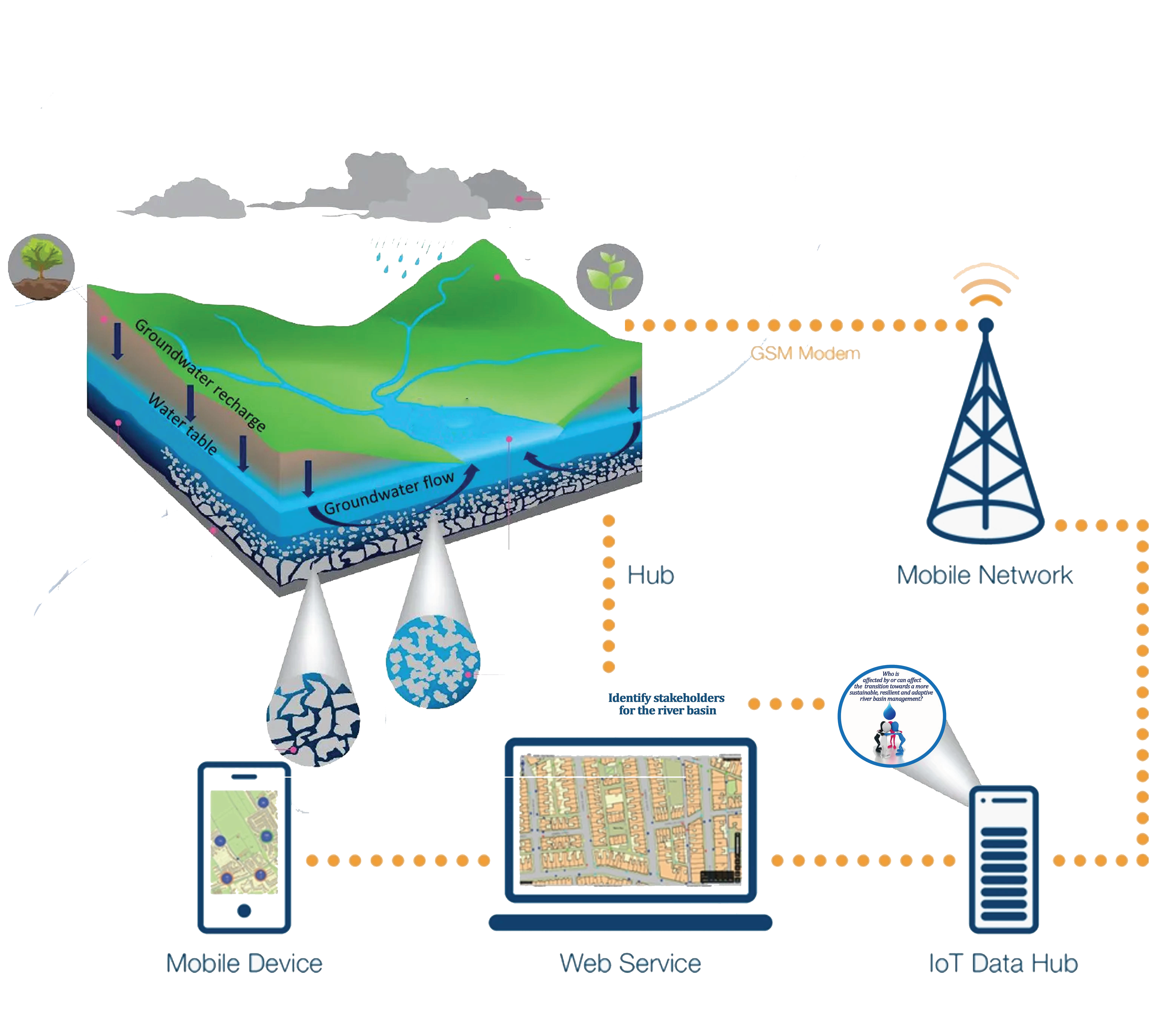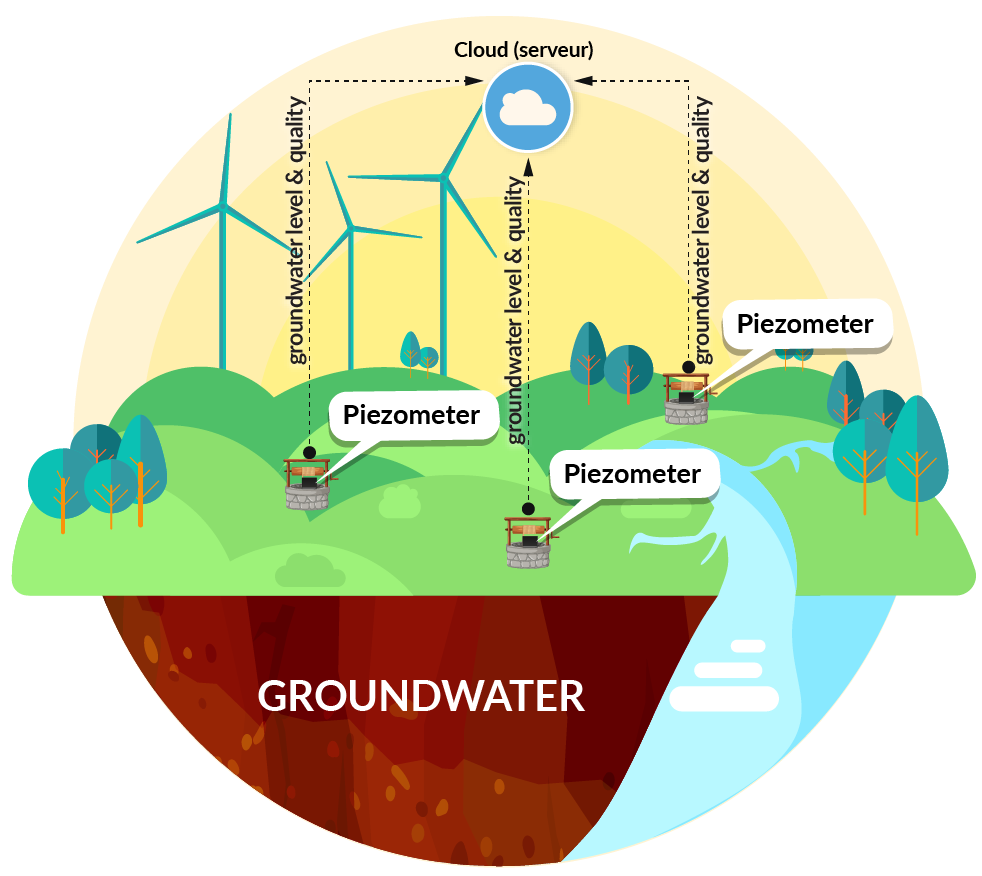Groundwater monitoring and groundwater data acquisition are pre-requisites for any effective management of groundwater resources, in terms of both the groundwater quality and the availability of the groundwater resource itself. Because of the complexities of groundwater systems, the design and operation of an effective groundwater monitoring is far from simple.
There are four basic objectives for establishing a monitoring system:
- Resource monitoring to increase the understanding of the groundwater system in a basin (recharge, discharge, interaction with surface water, changes in quality and quantity over time)
- Compliance monitoring to get information on the effectiveness of management Measures
- Protection monitoring for potential impacts on specific groundwater infrastructure or groundwater bodies
- Pollution containment monitoring to provide early warning information on impacts of potential pollution hazards


